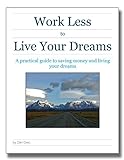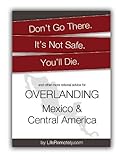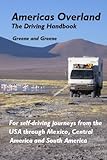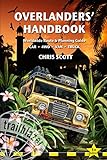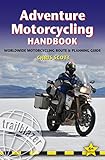Difference between revisions of "Chile"
(→Selling a foreign-plated vehicle) |
(→Selling a foreign-plated vehicle) |
||
| Line 178: | Line 178: | ||
A few things to note: | A few things to note: | ||
* If you have a camper or any type of vehicle you can sleep in, when you enter Chile try to get the vehicle type listed as "Camper" on the temporary import papers. This will make it much easier to sell, legally, anywhere in the country. | * If you have a camper or any type of vehicle you can sleep in, when you enter Chile try to get the vehicle type listed as "Camper" on the temporary import papers. This will make it much easier to sell, legally, anywhere in the country. | ||
| − | * Chile has special "Tax Free Zones" (''Zona Franca'') (Region XII) (Puerto Natales is a good example) that have different importation laws that the rest of the country. A resident of those zones ''can'' legally import a vehicle that is '''less than 10 years old''', though they will have to use a customs agent, deal with a lot of paperwork, | + | * Chile has special "Tax Free Zones" (''Zona Franca'') (Region XII) (Puerto Natales is a good example) that have different importation laws that the rest of the country. A resident of those zones ''can'' legally import a vehicle that is '''less than 10 years old''', though they will have to use a customs agent, deal with a lot of paperwork, pay heavy taxes and fees and the vehicle will be restricted in where in can go within Chile. You will need to find a resident of one of the tax free zones willing to go through the paperwork and expense and sell your vehicle to them. Due to the cost and difficulty, do not expect to receive a large amount for your vehicle.<ref>[http://www.allchile.net/chileforum/topic5735-12.html Chile Forum - Can I sell my Canadian car in a Zona Franca?]</ref> Some people claim to be able to get around the ''not more than 10 years old'' rule. |
=References= | =References= | ||
Revision as of 14:32, 26 October 2011
Contents
At the border
Correct as of: November 24 2010
Required Paperwork
- Passport of registered owner (original)
- Vehicle registration (original)
Process at border
- The owner of the vehicle gains entry at Immigration (Migración), including a stamp in their Passport.
- The owner must show the new passport stamp and original vehicle registration to Customs (Aduana).
- The owner is issued a temporary import permit for the vehicle.
Cost of entry
Free.
Permitted length of stay
Usually the same as the owner, commonly 90 days.
Extension of stay
Unknown.
Describe the process to extend the permitted length of entry for the vehicle, if possible.
Storing a vehicle and temporarily leaving the country
Unknown.
Describe if/how a vehicle can be stored, and for how long.
Also mention if the owner / temporary importer can leave the country while the vehicle is in storage.
Exiting with a vehicle
- The registered owner presents the temporary import paper to customs.
- The registered owner is stamped out of Chile at immigration.
Overland Essentials
Vehicle Insurance
Insurance requirements
Insurance is mandatory in Chile, and Police will most likely ask to see it at some point. It's common to buy a policy that covers multiple countries in South America.
Cost of insurance
Unknown.
State the price of insurance and a time period.
Where to purchase insurance
Unknown.
Describe where insurance can be purchased.
Driving license
Technically an International Driving Permit is required.
In reality, showing a license from anywhere in the world seems to be good enough.
Driving side of road
Right,
Right hand drive vehicles are permitted without problem.
Mandatory items in vehicle
None.
Roads
General Road quality
Roads in Chile are of excellent quality. All major highways are paved, marked with lines and well signed.
Road signs
Signs are very frequent clear.
Toll roads
Unknown. List the frequency and approximate price of toll roads.
Bribery
Bribery is not common in Argentina, though it does happen. Do not assume a Police officer is trying to bribe you, as he may take offense, making the situation worse.
See the bribery tips page for advice.
Checkpoints
Unknown.
describe the frequency of checkpoints (police or military and what to expect.
Traveling with pets
Unknown.
List the entry requirements and anything else required to travel with a pet.
Gasoline / Petrol / Diesel
Last updated: November 28, 2010
Price
| Gasoline Grade | Price |
|---|---|
| Regular | 1.45 USD / l |
| Super | ?? |
| Premium | ?? |
| Ultra | ?? |
| Diesel | ?? |
Gasoline Availability / Frequency
Gasoline shortages are not common, and gas stations are frequent, except in the extreme South and North of the country.
Gasoline Quality
Gasoline and Diesel are generally thought of as high quality, and very high octane gasoline for performance cars is usually available.
External information about gasoline
Unknown.
Link to external websites with price & quality information, if available.
Safety / Security Considerations
Driving at night
Driving at night is not typically thought of as a problem.
Vehicle parking
Parking vehicles on the street towns during the day and at night is typically OK. Find a secure parking lot in the biggest cities.
Special driving considerations
None.
Security advisories and information
- Country Specific Information - U.S. Department of State
- Travel Reports and Warnings - Foreign Affairs and International Trade Canada
- Travel advice by country - Foreign and Commonwealth office (U.K.)
- Travel Advice for Chile - Australian Department of Foreign Affairs and Trade
Camping
Camping is becomming more common in Chile, and as such campgrounds can usually be found in touristy areas. Many Overlanders road-side camp in the remote parts of Chile.
Price for organized campsites is Unknown.
Camping guide books
Unknown.
List and link to books specifically for camping.
Drinking water
Tap water in almost all of Chile is safe to drink. Ask a local to be certain.
Paper maps
Very high quality road maps of Chile can be purchased in gas stations and book stores throughout the country.
GPS
- Open Street Map: Appears to have good coverage.[1]
- Garmin: "Most urban areas with intertown roads".[2]
- TomTom: Amount of coverage not listed. [3]
Directions and GPS co-ordinates for camping, propane, gas, repairs, etc.
- Camping Sites: Chile North,Camping Sites: Chile South - Detailed list of campsites and propane filling with description, directions and GPS co-ordinates. Some at hotels (lists facilities and price), some roadside and free.
- Andes Expedition camping Locations - List of campsites, with basic directions and GPS co-ordinates. Mostly free sites.
- Camping Log 2: South America - List of campsites, shopping, fuel, propane and border crossings with excellent descriptions and GPS co-ordinates.
- Hackney Travel SA Waypoints - Raw GPS data (in gdb or gpx format) for waypoints (including campsites, fuel, repairs, propane and more)
- The Silk Road Motocaravan Network - Raw GPS data for waypoints (camping, gas, propane, points of interest and more)
Overland Travel Interest
Special Overland interests
- The extreme southern end of the Carretera Austral (Route 7) is highly regarded among Overlanders and well worth the drive. The road is a dead end at Villa O’Higgins, the extreme Southern end. It is possible to buy extremely expensive gas here, but don't count on it being there.
Guide Books
Vehicle Maintenance
Unknown.
List Garages &/or dealerships for major vehicle manufacturers (including motorbikes).
Trusted mechanics can also be listed here.
Buying and selling vehicles
Buying a vehicle as a foreigner
Foreigners can purchase and register vehicles in Chile, and drive them to any country they choose without limits.
Selling a foreign-plated vehicle
The process is long and difficult, but it can be done. A few things to note:
- If you have a camper or any type of vehicle you can sleep in, when you enter Chile try to get the vehicle type listed as "Camper" on the temporary import papers. This will make it much easier to sell, legally, anywhere in the country.
- Chile has special "Tax Free Zones" (Zona Franca) (Region XII) (Puerto Natales is a good example) that have different importation laws that the rest of the country. A resident of those zones can legally import a vehicle that is less than 10 years old, though they will have to use a customs agent, deal with a lot of paperwork, pay heavy taxes and fees and the vehicle will be restricted in where in can go within Chile. You will need to find a resident of one of the tax free zones willing to go through the paperwork and expense and sell your vehicle to them. Due to the cost and difficulty, do not expect to receive a large amount for your vehicle.[4] Some people claim to be able to get around the not more than 10 years old rule.
References
- ↑ OpenStreetMap Chile
- ↑ City Navigator® South America NT
- ↑ TomTom Map availability
- ↑ Chile Forum - Can I sell my Canadian car in a Zona Franca?

